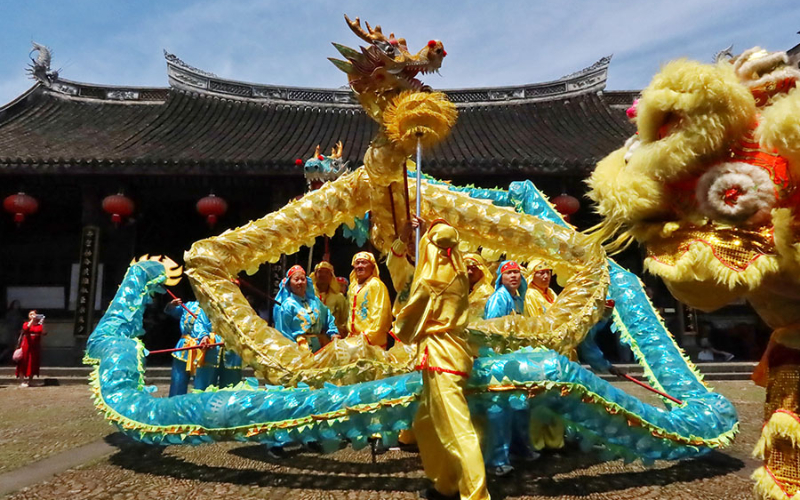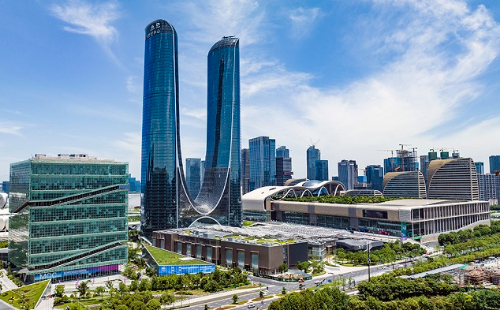Pan'an: Cultural development awakens ancient tea market
Pan'an, a mountainous county in central Zhejiang province, has achieved remarkable development in the past 15 years by exploring its tea culture and traditional folk arts.
The county is well known for having China's oldest tea market, which was built in the Qing Dynasty (1644-1911) and has been honored as a "living fossil" of tea culture by experts. The market received about 250,000 visitors in 2017, bringing income of about 100 million yuan ($15.30 million) to the county.
About 12 years ago, the county was quite backward. Changes started to take place in 2003, when Zhejiang decided to speed up the development of cultural industry. This prompted local residents to look to the then obsolete ancient tea market.
Qiu Lyuping, curator of Pan'an Tea Culture Museum, explained that the Yushan Tea Market was renovated in 2006 and designated as "Major Historical and Cultural Site Protected at the National Level" by the State Council.
As Yushan Tea Market gained popularity, more tourists came to the market and the surrounding areas. To better make use of the market's growing fame, local authorities began to build a uniform brand in an effort to make tea into a pillar industry and increase the price of local tea. An annual tea culture festival was also held to let more people know about yunfeng tea which grew in Pan'an.
Kong Zhongming, general manager of Pan'an County Yunfeng Tea Factory, said that integration of tea and tea culture helped increase the price of their tea to 1,200 yuan per kilogram from the original 300 yuan before 2000. In 2013, more than 1,500 tons of yunfeng tea was produced, generating a value of 200 million yuan.
However, most tourists and tea merchants only visited the tea market or bought tea leaves and left without taking a tour around the county. Curator Qiu said that they wanted to build an industrial chain to give more value to tourism.
Therefore, the county set up a center of intangible cultural heritage in 2013. Officials were dispatched to look for the already disappeared folk culture activities and a large amount of information was collected.
A series of folk activities, such as a "tea market" temple fair, were started. In 2014, local authorities introduced the intangible cultural heritages to middle and primary schools, hoping the children would embrace the cultures and eventually pass them on.
Now, Pan'an culture has become an attractive destination for tea merchants and tourists. In 2017, the county received as many as 12 million visitors who brought in 10.2 billion yuan.
Centering on Yushan Tea Market, the county plans to build a folk culture square, an art park featuring tea culture, and other support facilities with the aim of becoming a characteristic town of 5A level that integrates tea culture and tourism.





